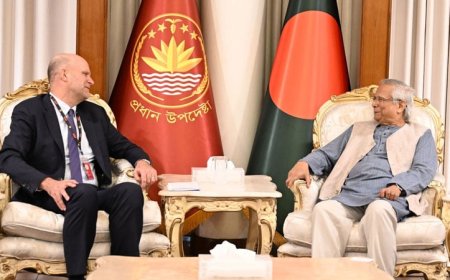NCP Unveils Roadmap for Foundational Reform, Calls for New Constitution
NCP Unveils Roadmap for Foundational Reform, Calls for New Constitution

The National Citizen Party (NCP) has unveiled a political vision for Bangladesh grounded in the spirit of the Liberation War, advocating inclusive democracy, the dismantling of authoritarianism, and deep institutional reform. The party emphasizes cultural pluralism and a welfare-oriented economy as key pillars of its agenda.
In a Facebook statement posted today, NCP Convener Nahid Islam declared, “The Liberation War is a cornerstone of the Bangladeshi state. Our vision is rooted in the values of equality, justice, and human dignity—principles upheld in 1971 and revived in the 2024 mass uprising.”
The NCP reaffirmed its resolute opposition to authoritarianism, calling for the abolition of what it described as a fascist regime and the formation of a new political settlement. “Our foremost political duty is to dismantle this fascist order,” Nahid stated, adding that the path forward begins with foundational state reforms and the drafting of a new constitution.
According to the party, these reforms are essential to building a truly democratic and participatory republic. Without structural change, the NCP argued, the goals of justice, accountability, and inclusive governance will remain elusive.
On matters of religion and identity, the party promoted a vision of coexistence over ideology. “We respect the spiritual beliefs of all citizens,” the statement affirmed, acknowledging Islam as the faith of the majority while also committing to the protection of the rights of minority religions and ethnic communities. The party framed its outlook as an extension of the region’s anti-colonial and anti-caste heritage, involving both Bengali Muslims and Hindus.
Rejecting both secularist and theocratic labels, the NCP proposed an inclusive democratic model rooted in mutual respect and religious harmony. The party also advanced a shift in national identity from communal markers to a broader civilizational identity that reflects the pluralistic heritage of the Bengal delta.
Economically, the NCP laid out a progressive agenda, prioritizing education, healthcare, agriculture, labor rights, and employment. A notable proposal included the creation of a Bay of Bengal-centered economic zone to position Bangladesh as a regional hub.
Women’s empowerment was identified as a core principle, with commitments to education, healthcare, leadership, safety, and equal rights. The party specifically pledged to advocate for just inheritance laws and broader gender equality within the family and society.
In foreign policy, the NCP took a strong stance against regional domination, warning that Indian hegemony and Hindutva ideology pose cultural and geopolitical threats to Bangladesh. It vowed to pursue foreign relations grounded in justice, dignity, and national interest.
Overall, the NCP presented a bold and transformative political agenda, aiming to reconstruct the state on foundations of justice, democracy, and the shared aspirations of the people of Bangladesh.
What's Your Reaction?






















































































